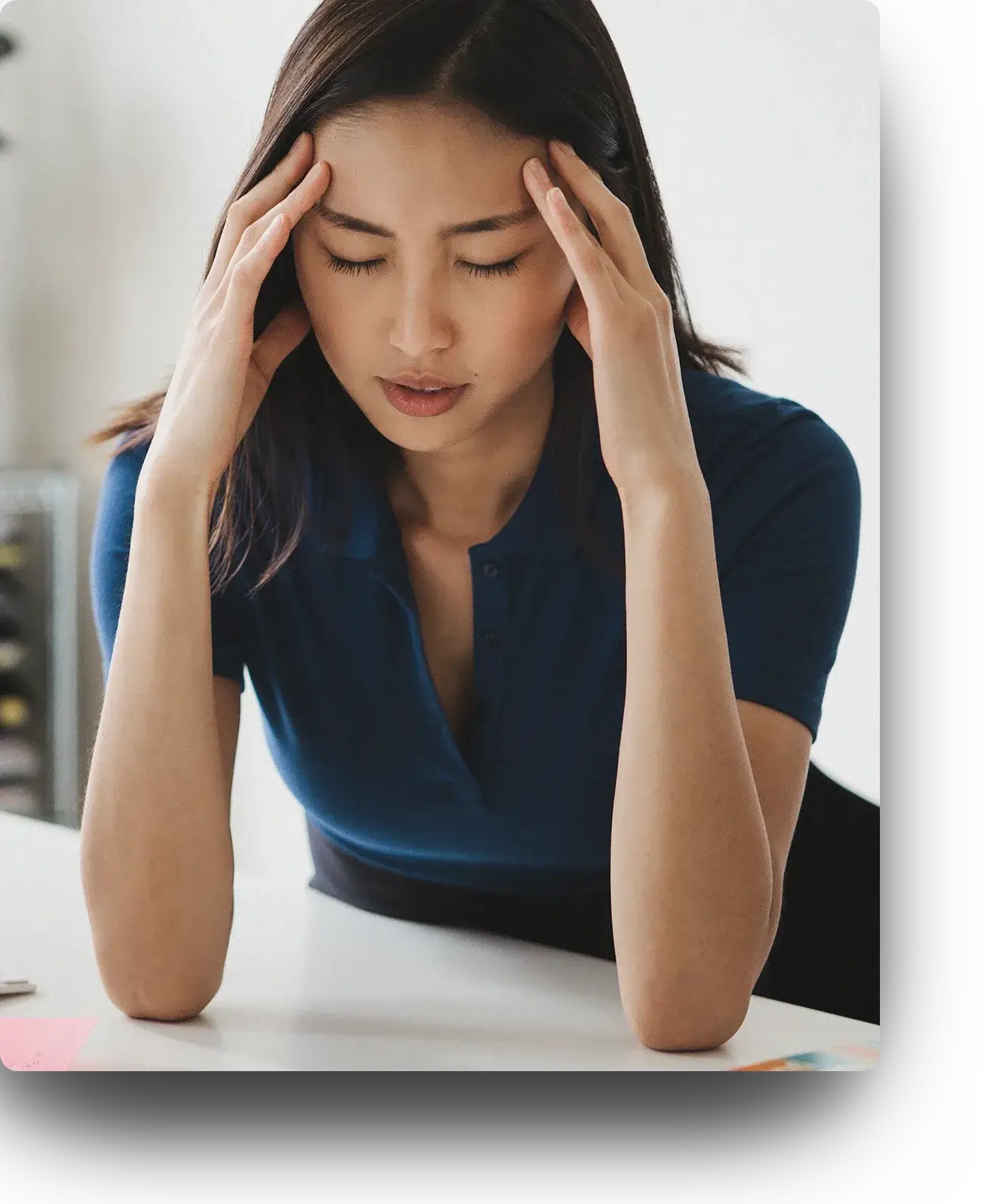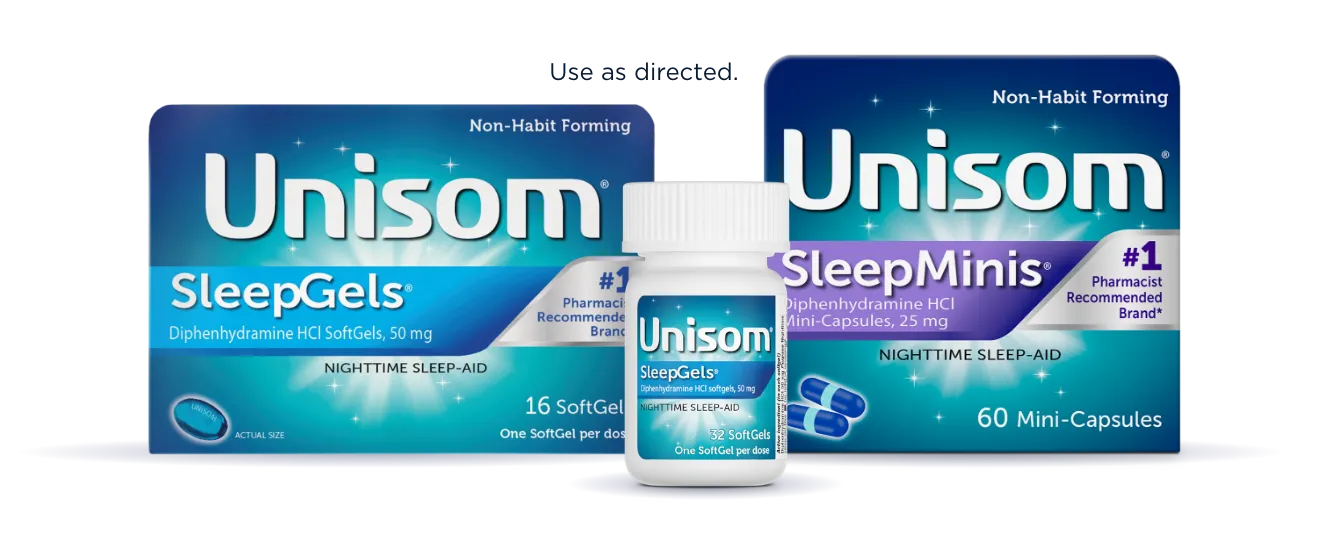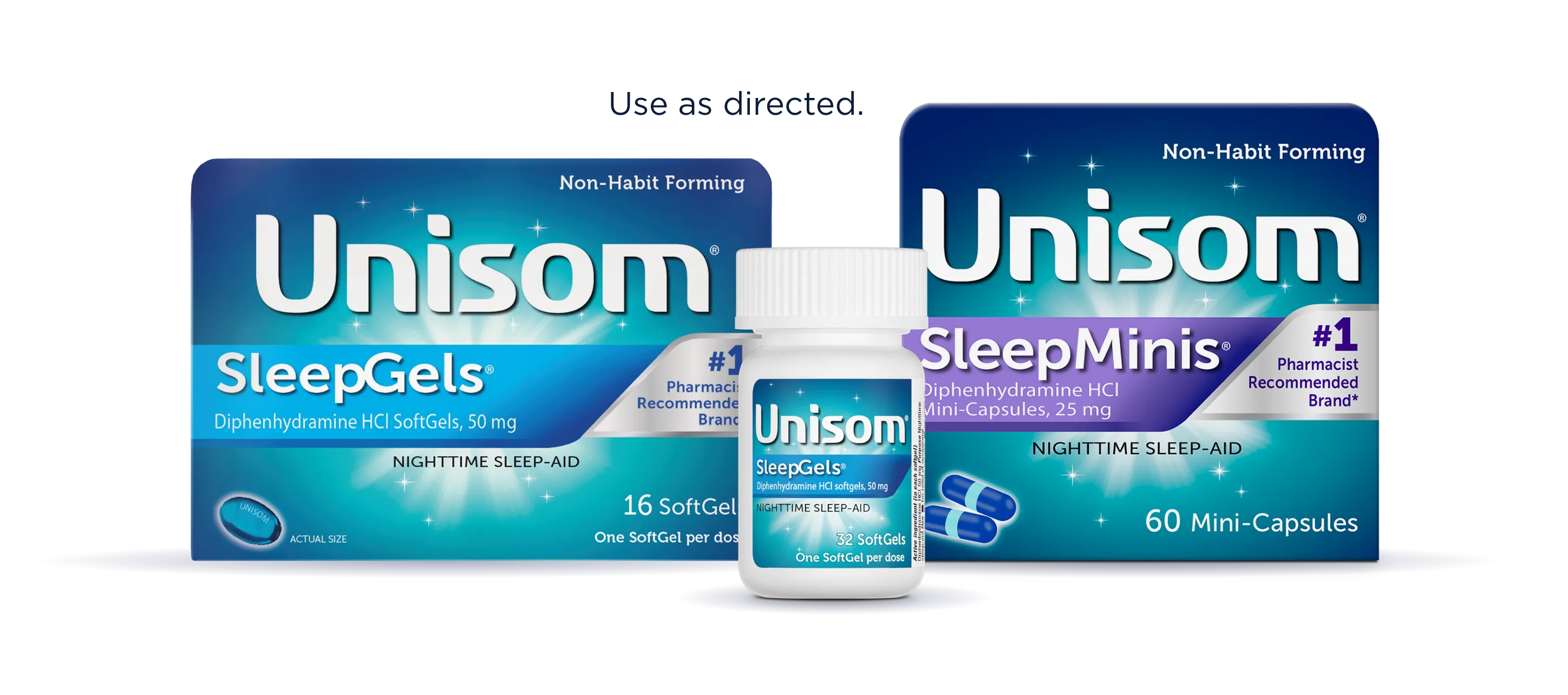Struggling to fall asleep after a hectic day can leave you feeling frustrated, and in some cases, even more stressed out. When nighttime itself becomes a source of stress, it’s easy to fall into a vicious cycle of stress and sleeplessness: you can’t fall asleep because you’re stressed, and you’re stressed because you can’t fall asleep. If this sounds familiar, read on to discover our top stress management tips to help you stop losing sleep and enjoy a more restful night’s sleep.
How Does Stress Affect Sleep?
Stress is a natural response created by your body to protect itself in potentially dangerous situations. This “fight or flight” response results in quicker breathing, an elevated heart rate, and an increased production of stress hormones. Ongoing stress can cause sleep disruptions that keep you from getting the uninterrupted rest your body needs, and can even make existing sleep issues worse. When left unchecked, stress can also have a number of long-term effects on your overall health, and potentially contribute to obesity, diabetes, and heart disease.
9 Tips To Reduce Stress and Sleep Better
If you find yourself tossing and turning, it may be time to take a closer look at how to better manage your stress and anxiety levels. When you’re feeling too stressed for slumberland, don’t forget: You’re not alone. General stress levels in American adults have been reported to be significantly higher in recent years, according to a 2020 survey by the American Psychological Association.1
Fortunately, there are a number of effective relaxation strategies and sleep hygiene tips that can help you beat stressful feelings at bedtime and promote a better night’s rest. Continue scrolling to discover our top tips to manage stress that can help keep those worries from interfering with your Zzzs.
1. Try progressive muscle relaxation
When unwanted stress and sleep troubles take over, it’s helpful to seek out relaxation techniques that can produce feelings of calm, as well as lower your blood pressure, decrease muscle tension, and slow your heart rate. One example of a widely-studied and easy-to-learn relaxation technique is progressive muscle relaxation (PMR), which involves consciously tensing and relaxing different muscle groups gradually to help achieve a more relaxed state. In one study, it was reported that progressive muscle relaxation helped with effectively alleviating stress and anxiety in nursing students.2
2. Pick up a journal and start writing
Whether it’s your finances, job, relationship, or a stressful life event, try writing down your feelings after a hectic day to get them out in the open. Research shows that picking up a journal can have numerous benefits for stress reduction, anxiety, and overall wellness.3 In addition, setting aside specific windows of time (such as 15-minute intervals) throughout the day to tackle those worries head-on can help. Try creating to-do lists or jot down whatever’s on your mind before the evening rolls around.
3. Stick to a daytime exercise routine you enjoy
Daytime exercise is not only great for beating stress and blowing off some steam, but it may also help you sleep better. To enjoy the benefits of this excellent stress reliever, it’s best to limit workouts to at least 1-2 hours before bedtime to allow your body ample time to wind down. Sticking to workouts you enjoy can also make it easier to remain consistent in whatever form of exercise you choose. If your mobility is limited, check with your healthcare provider to see which types of physical activity may be suitable for you.
4. Practice meditation or deep breathing exercises
According to one 2012 review, it was found that out of 36 trials of people in a meditation group, 25 of them reported better relief of anxiety symptoms.4 A meditation, deep breathing, or mindfulness practice can be a great addition to your bedtime routine as a way to reduce the disruptive effects of stress on your sleep. You can also try visualizing a serene environment, or even use the traditional method of “counting sheep” as a way to shift your mind’s focus to your breathing and off of stressful thoughts. These practices can help you feel calmer, more balanced, and better equipped to cope with stress or sleeplessness.
5. Explore device-free ways to unwind at bedtime
We recommend putting all devices away a few hours before bedtime. Besides potentially stress-triggering content or noise disruptions, electronics also emit blue light, which can affect your sleep-wake cycle and make it harder to doze off. Instead of scrolling through social media before bed, try coming up with some alternative stress-busting nighttime activities that don’t involve digital devices, such as taking a hot bath or reading.
6. Fill up on nutritious, healthy foods
The quality of your lifestyle and diet play a crucial role in how you feel at bedtime, as well as throughout the day. Population-based studies show that a healthy, whole foods-based diet is linked to lower levels of anxiety, stress, and depression.5 Whenever possible, stick to a nutritious, well-balanced diet and try to avoid consuming alcohol, caffeine, big meals, or spicy foods that may cause heartburn too close to bedtime. A calming cup of tea at bedtime, such as chamomile tea, can help promote relaxation and make it easier to wind down for sleep after a stressful day.
7. Eliminate or reduce stress triggers
Try to avoid exposing yourself to stressful, stimulating, or anxiety-causing activities too close to bedtime. Emotionally-charged or tense situations can negatively affect your ability to snooze by triggering your body’s stress response—which can increase cortisol production and enhance your alertness. Try to reserve psychologically or physically stressful situations for daytime whenever possible to help protect the quality and duration of your slumber.
8. Follow a soothing nighttime ritual
Following good sleep hygiene practices, such as sticking to a consistent sleep schedule (even on weekends), is another effective way to better manage stress and stress-related sleep troubles. Your soothing nighttime ritual should include some quiet relaxation time before hitting the hay each night, as well as a calming nighttime environment that is mindfully set up to help you de-stress. For more tips on how to optimize your bedroom for better sleep, read our guide on how to turn your bedroom into a sleep oasis.
9. Talk to an expert or a friend
Despite the fact that millions of Americans struggle to fall or stay asleep,6 many choose to suffer in silence—never seeking help or sharing the burden of their challenges. When life throws stressful situations your way, it’s important to keep in close communication with family, friends, and loved ones for emotional support. Cognitive behavior therapy (CBTI) and cognitive behavioral stress management (CBSM) are two types of therapy that have been proven to help reduce feelings of stress and relieve stress-related sleep troubles.
If you’re experiencing sleeplessness that persists longer than two weeks, always consult with a healthcare professional, as this can be a sign of a more serious underlying illness. You should also seek the immediate help of a professional if stressful feelings become overwhelming or you have suicidal thoughts or trouble with normal day-to-day functioning.
Rest Assured
Sometimes, it’s nice to know that a bit of extra support is available when you need it. That’s why Unisom® is here for you, the #1 pharmacist- and doctor-recommended OTC sleep-aid brand. You can count on us to help you fall asleep faster, stay asleep longer, and wake up feeling refreshed†—with a range of options that include the below products.
Unisom® SleepGels® contain the histamine blocker sleep-aid diphenhydramine HCl. Blocking histamine production can help you fall asleep faster and stay asleep.
Unisom® SleepTabs® contain doxylamine succinate, which is a clinical-strength histamine blocker sleep-aid that works in a similar fashion to diphenhydramine. Unisom® SleepTabs® can help you fall asleep 33% faster and get a full night's sleep.
Find the Unisom product that’s right for you and download the Unisom Sleep Diary.
|
† These statements have not been evaluated by the Food and Drug Administration. This product is not intended to diagnose, treat, cure or prevent any disease. |
This article is not a substitute for medical advice. Unisom is only intended to help with occasional sleeplessness. If you are suffering from ongoing sleep concerns, seek the help of a medical professional.
Professional References
1. APA. “Stress in AmericaTM 2020, Stress in the Time of COVID-19, Volume One.” American Psychological Association, May 2020.
2. Toussaint, Loren et al. “Effectiveness of Progressive Muscle Relaxation, Deep Breathing, and Guided Imagery in Promoting Psychological and Physiological States of Relaxation.” Evidence-based complementary and alternative medicine : eCAM vol. 2021 5924040. 2 Jul. 2021, doi:10.1155/2021/5924040
3. Smyth JM, Johnson JA, Auer BJ, Lehman E, Talamo G, Sciamanna CN. Online Positive Affect Journaling in the Improvement of Mental Distress and Well-Being in General Medical Patients With Elevated Anxiety Symptoms: A Preliminary Randomized Controlled Trial, JMIR Ment Health 2018;5(4):e11290, doi: 10.2196/11290, PMID: 30530460, PMCID: 6305886
4. Chen, Kevin W et al. “Meditative therapies for reducing anxiety: a systematic review and meta-analysis of randomized controlled trials.” Depression and anxiety vol. 29,7 (2012): 545-62. doi:10.1002/da.21964
5. Rucklidge, Julia J., and Bonnie J. Kaplan. “Nutrition and Mental Health.” Clinical Psychological Science, vol. 4, no. 6, Nov. 2016, pp. 1082–1084, doi:10.1177/2167702616641050.
6. Paprocki, Jonathan. “Insomnia Awareness Day Facts and Stats.” Sleep Education, 29 Apr. 2021.
†These statements have not been evaluated by the Food and Drug Administration. This product is not intended to diagnose, treat, cure or prevent any disease.


